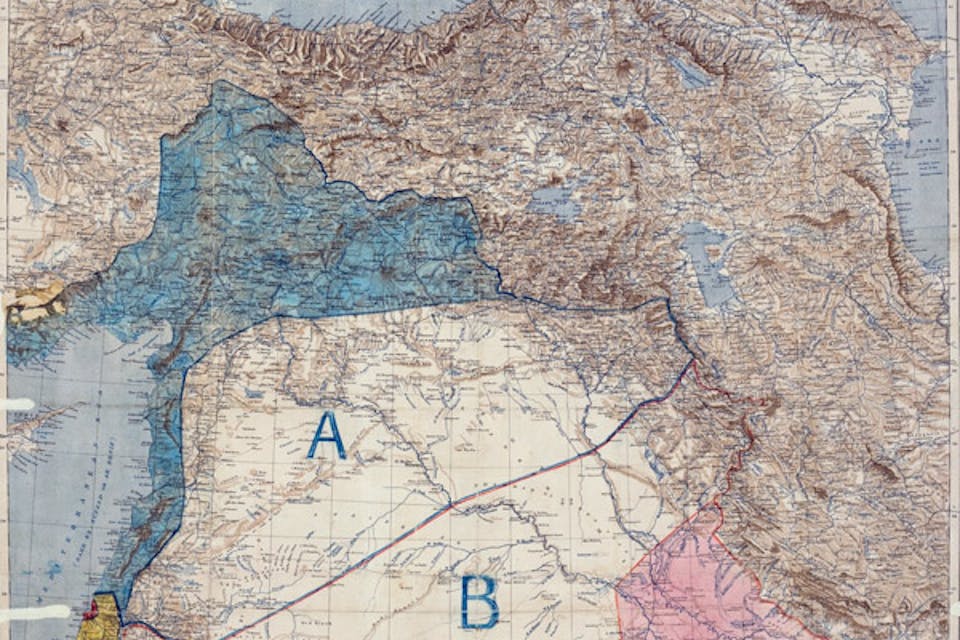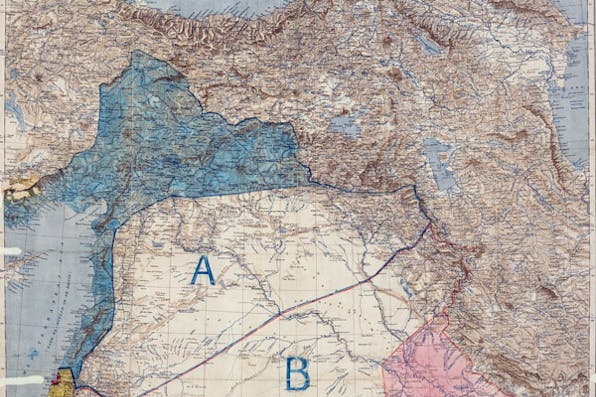
January 23, 2014
The Middle East—It’s Bad Enough As Is
We don't need overhyped claims about the collapse of Sykes-Picot to see that Israel has more than enough bad options to grapple with.
Like fashion and food, political analysis of the Middle East has its fads, too. At one time, there was the “days are numbered” fad, as in “King Hussein’s days are numbered” or “the Saudis’ days are numbered.” In fact, the former died of natural causes after nearly five decades on the throne while the latter have proved surprisingly resilient, leader after leader. For many years, there was the “linkage” fad, the fervently held belief that resolution of the Israeli-Palestinian conflict unlocked the secret elixir to heal all of the region’s ills. No serious person makes that case any more, marveling instead at the impermeable bubble in which Secretary of State John Kerry keeps Israeli-Palestinian peace talks quarantined from the chaos swirling around the region.
The current fad is about “the collapse of Sykes-Picot,” a phrase that triggers no fewer than 5.7 million hits in a Google search. This thesis takes various forms but, at its core, it is the idea that the system of largely artificial nation-states invented by the British and French at the end of World War I to safeguard their colonial interests—a system kept in place in the post-colonial period by decades of strong-man rule—is finally collapsing. In most versions of the story, the competing and often violently conflicting loyalties of tribe, sect, ethnicity, and religion are chiefly responsible for erasing these century-old lines in the sand.
Like the earlier fads, advocates can rightly cite certain objective facts to support their case. Fact: one Arab state, Sudan, has recently divided into two, largely along religious and tribal lines. Fact: the tragic history of the long-suffering Kurdish people is looking more hopeful than ever with the emergence of a largely effective, quasi-independent, refreshingly progressive (certainly by regional standards) Kurdish government in northern Iraq. Fact: after more than 40 years, the Assad family no longer has a firm grip on the Syrian state and its mosaic of populations, with large swaths of the country totally, and perhaps irretrievably, free from central government control. And fact: in just 15 years, an ideologically based, transnational non-state actor, al-Qaeda and its affiliates, has risen to the top of the national security agenda of both Western nations and status-quo states in the region. There are possibly other facts to add to this list.
Responses to January ’s Essay

January 2014
What Would Ben-Gurion Do
By Michael Doran
January 2014
More Important is Patience
By Efraim Inbar
January 2014
Beware an Alliance of the Weak
By Martin Kramer
January 2014
The Middle East—It’s Bad Enough As Is
By Robert Satloff
January 2014
Objects in Mirror Appear Larger Than They Are
By Ofir Haivry